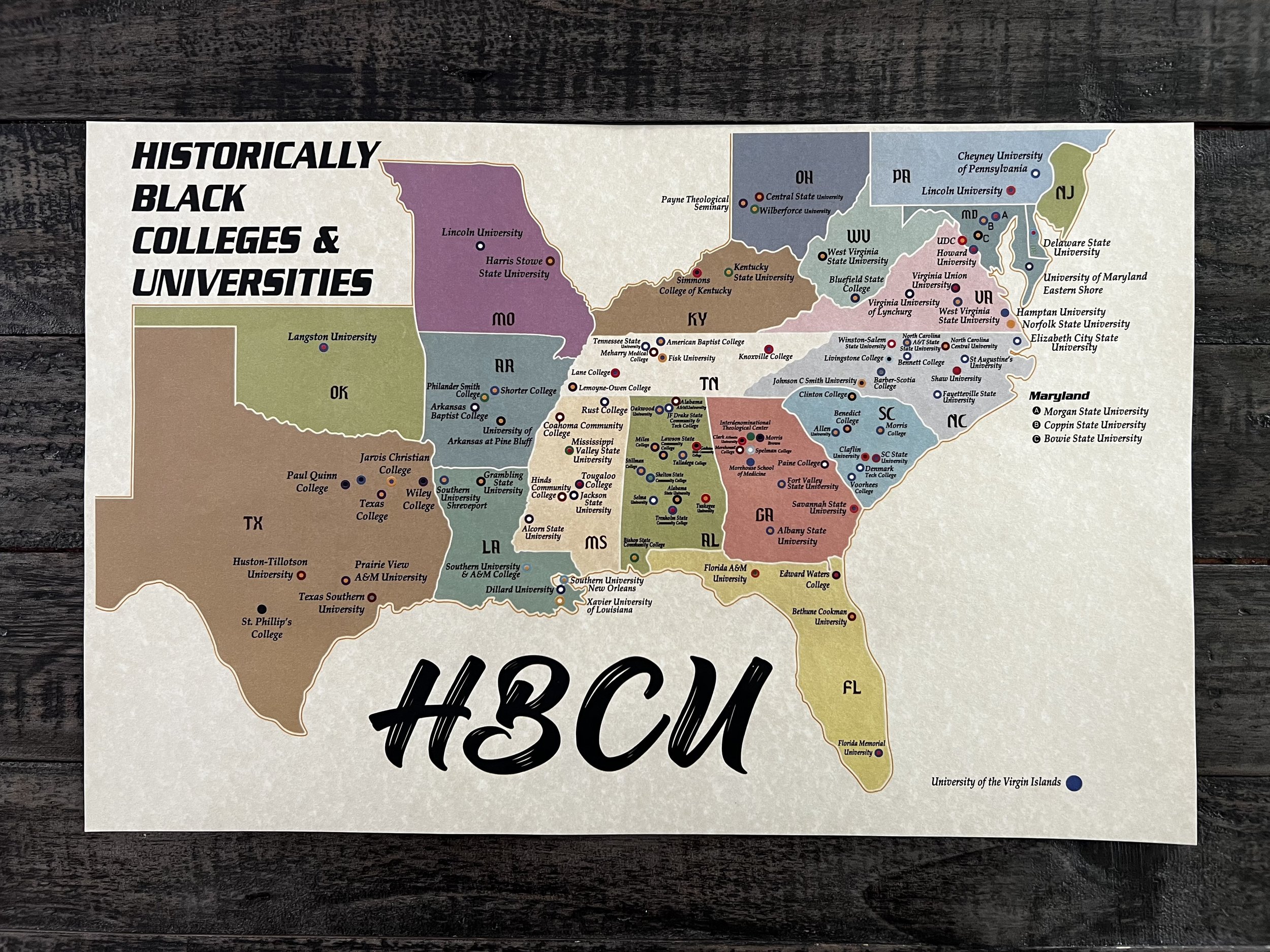Empowering Generations: The Rich History and Impact of Historically Black Colleges and Universities (HBCUs)
Delve into the storied legacy of Historically Black Colleges and Universities (HBCUs), exploring their pivotal role in providing access to higher education for Black students, their remarkable success rates, and their enduring impact on the American education system.

Empowering Generations: The Rich History and Impact of Historically Black Colleges and Universities (HBCUs)
Historically Black Colleges and Universities (HBCUs) stand as pillars of educational opportunity, resilience, and empowerment within the American higher education landscape. For more than a century, these institutions have played a pivotal role in providing access to quality education for Black students, nurturing academic excellence, and fostering leadership and innovation. Let's explore the rich history and enduring impact of HBCUs, including their remarkable success rates and the profound influence they have had on shaping the American education system.
A Legacy of Resilience
The origins of HBCUs can be traced back to the Reconstruction era following the Civil War, a period marked by profound social and political upheaval in the United States. In the aftermath of slavery, newly emancipated Black Americans faced systemic barriers to education, including segregation, discrimination, and limited access to resources. In response to these challenges, HBCUs emerged as beacons of hope and opportunity, providing a safe haven for Black students to pursue higher learning and fulfill their academic potential.
Pioneering Institutions
The founding of HBCUs represented a pioneering effort to establish institutions of higher education dedicated to the advancement of Black intellectual, social, and economic progress. Some of the earliest HBCUs, such as Cheyney University of Pennsylvania (founded in 1837) and Lincoln University (founded in 1854), were established with the mission of educating formerly enslaved individuals and preparing them for leadership roles in their communities.
Educational Excellence
Over the decades, HBCUs have earned a reputation for academic excellence and innovation, producing a diverse array of scholars, leaders, and trailblazers across various fields and industries. From pioneering scientists and groundbreaking artists to visionary entrepreneurs and esteemed policymakers, HBCU alumni have made significant contributions to society and helped shape the course of American history.
Success Rates and Impact
Contrary to stereotypes and misconceptions, HBCUs have consistently demonstrated impressive success rates in graduating students, particularly those from underrepresented and underserved backgrounds. According to a report by the United Negro College Fund (UNCF), HBCUs are responsible for producing a disproportionate number of Black graduates who go on to excel in graduate school, professional careers, and leadership positions. Moreover, HBCUs have played a crucial role in narrowing the racial achievement gap and promoting social mobility for generations of Black Americans.
Cultivating Leadership and Empowerment
One of the defining characteristics of HBCUs is their commitment to nurturing leadership and empowerment among students, instilling in them a sense of pride, purpose, and community engagement. Through mentorship, experiential learning opportunities, and culturally relevant curricula, HBCUs empower students to become agents of change and advocates for social justice in their respective fields and communities. Many HBCU graduates attribute their success to the supportive and nurturing environment fostered by these institutions, which prioritize student-centered approaches to education and holistic development.
Challenges and Opportunities
Despite their remarkable achievements and contributions, HBCUs continue to face challenges in securing adequate funding, resources, and institutional support. Persistent disparities in funding between HBCUs and predominantly white institutions (PWIs), coupled with broader systemic issues such as socioeconomic inequality and structural racism, pose significant obstacles to the long-term sustainability and growth of HBCUs. However, HBCUs also present opportunities for collaboration, innovation, and collective advocacy, as stakeholders work together to address these challenges and ensure the continued vitality of these vital institutions.
Looking Ahead
As we reflect on the rich history and enduring impact of HBCUs, it is essential to recognize the ongoing relevance and significance of these institutions in today's ever-changing world. In an era marked by calls for racial equity, diversity, and inclusion, HBCUs serve as catalysts for progress and transformation, championing the values of excellence, resilience, and empowerment. By investing in the future of HBCUs, we invest in the future of generations to come, ensuring that all students have the opportunity to pursue their dreams and fulfill their potential, regardless of race, background, or socioeconomic status.
In conclusion, the legacy of Historically Black Colleges and Universities (HBCUs) is one of resilience, excellence, and empowerment. From their humble beginnings to their enduring impact on the American education system, HBCUs have played a vital role in expanding access to higher education, promoting academic achievement, and fostering leadership and innovation among Black students. As we celebrate the achievements of HBCUs, let us also commit to supporting and uplifting these institutions, ensuring that they continue to thrive and inspire future generations for years to come.
What's Your Reaction?























